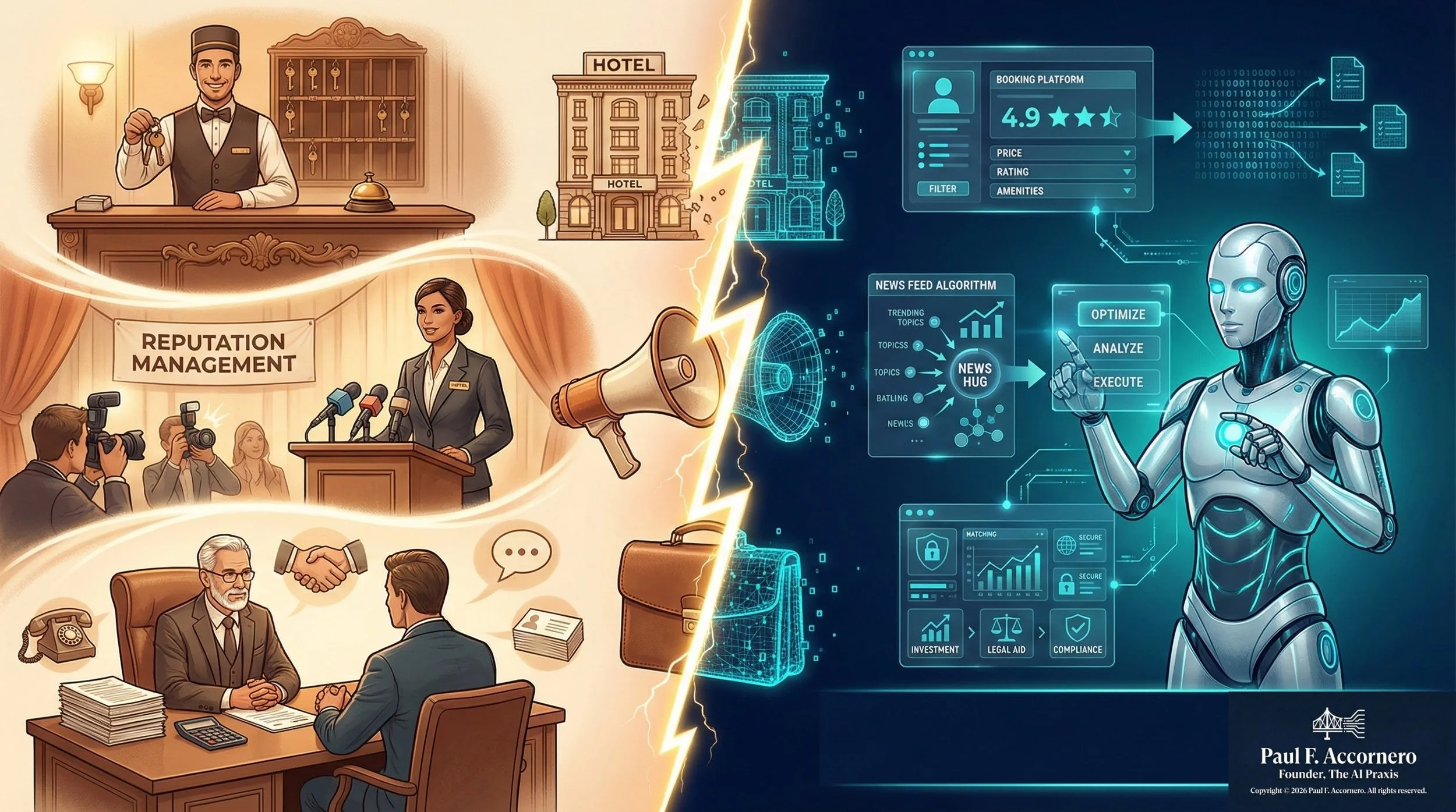
Beyond the Kitchen: Why the Shopper Schism Isn't Just About Consumer Goods
Your hotel doesn't compete for your loyalty anymore—Booking.com does. The same transformation is coming for PR, legal, financial services, and every industry that thinks it's different. New research from Paul F. Accornero.
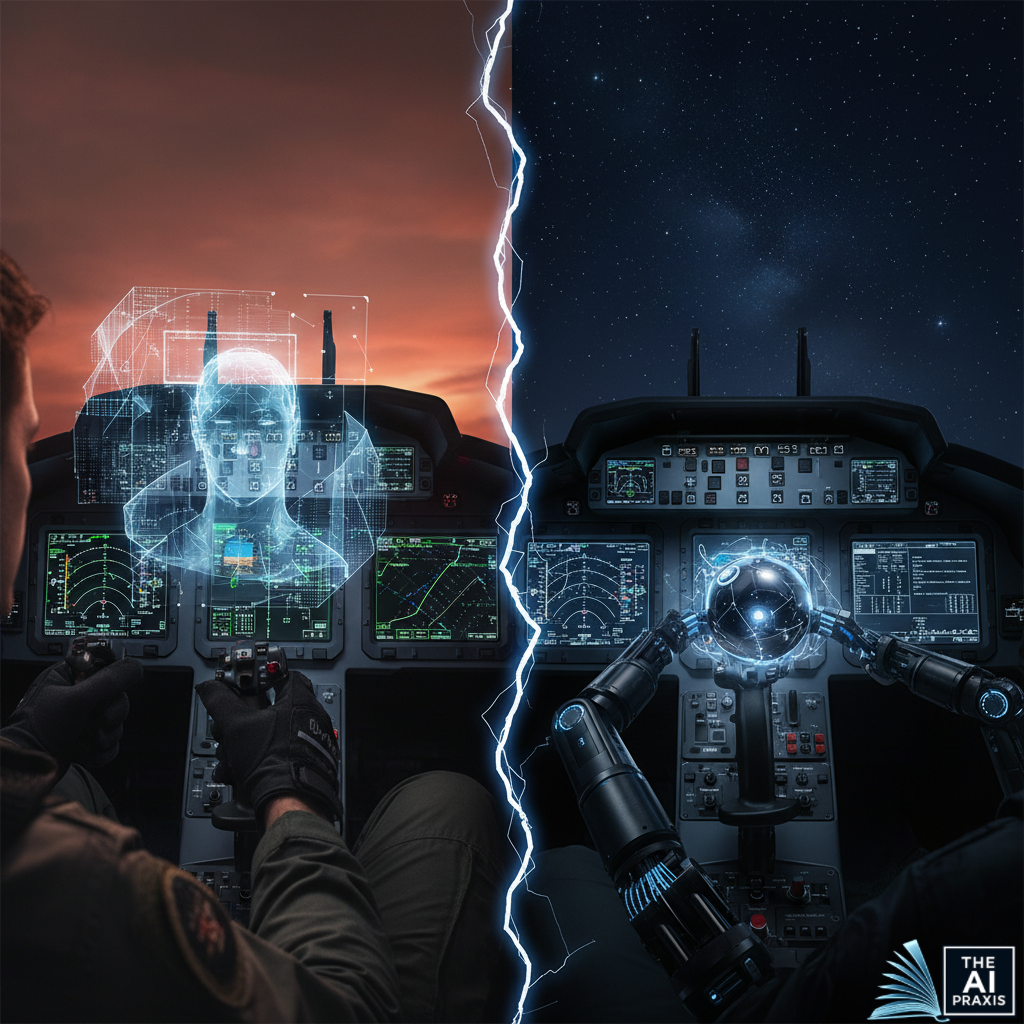
AI Co-Pilot vs. Autopilot: The Most Dangerous Strategic Error a C-Suite Leader Can Make Today
Business leaders are investing billions in "AI" without understanding a critical distinction: the difference between a Co-Pilot and an Autopilot. One augments your current business model, making it more efficient. The other makes it obsolete by replacing the human decision-maker entirely. This article cuts through the hype to provide a clear, actionable framework for leaders , arguing that preparing for a Co-Pilot when an Autopilot like the Algorithmic Shopper is coming is a potentially fatal strategic error.

The Architects of Our New World: How Visa, Google, and Walmart Are Building the Agentic Economy
While we debate the future of AI, the agentic economy is already being constructed in plain sight by three familiar giants: Visa, Google, and Walmart. This article moves beyond analyzing them in their traditional silos to reveal their deeper strategies. Each is architecting a unique, competing "Walled Garden" for our Algorithmic Shoppers. Discover the three distinct visions—the Universal Translator, the Universal Brain, and the Universal Supply Chain—and what they mean for the future of your business.
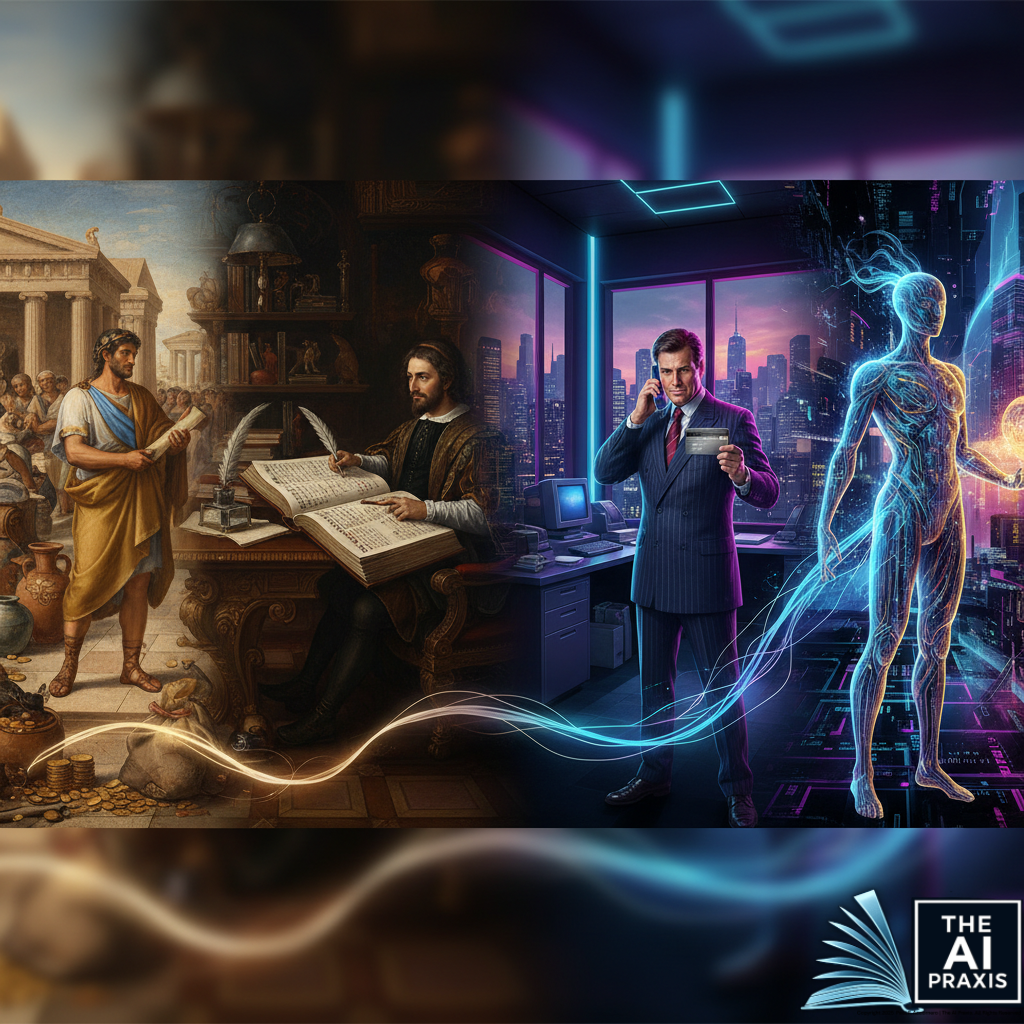
From the Agora to the Algorithm: The 7,000-Year Journey to Your Next Customer
The rise of the AI shopper seems like a radical, unprecedented disruption. But what if it's the most predictable evolution in economic history? This article traces the 7,000-year arc of "commercial abstraction," from the physical Agora to the abstract algorithm. By understanding how we've systematically delegated trust to proxies like coins, ledgers, and credit cards, we can see the Algorithmic Shopper not as a revolution, but as the final, logical step in our quest for frictionless commerce.
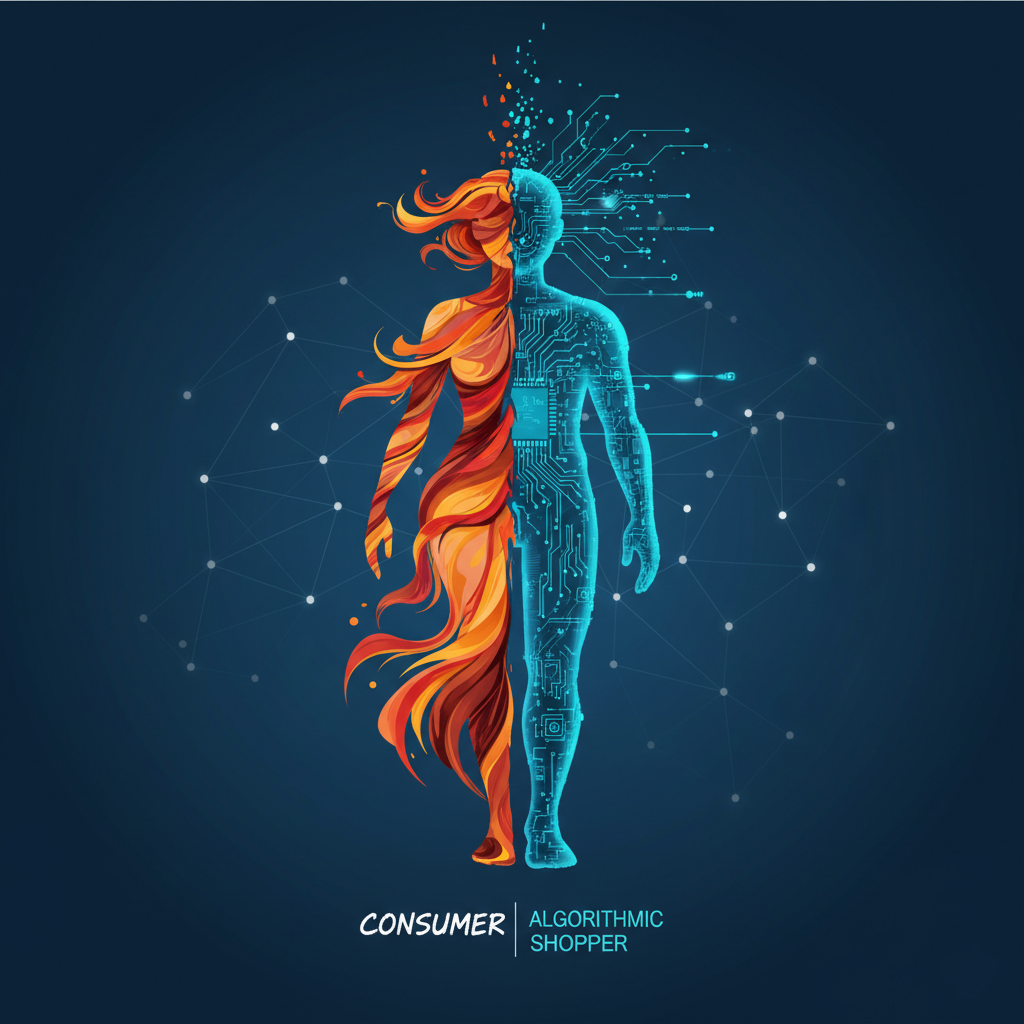
The Dog Food Dilemma: Why a Century of Marketing Is Obsolete in the AI Age
For a hundred years, marketing has focused on persuading the human shopper. But what happens when the shopper is no longer human? This article uses the classic "Dog Food Dilemma" to introduce the Shopper Schism (Great Decoupling)—the irreversible, AI-driven split between the human consumer and the transactional shopper. It deconstructs why our entire commercial playbook is becoming obsolete and what leaders must do to prepare for the age of the Algorithmic Shopper.
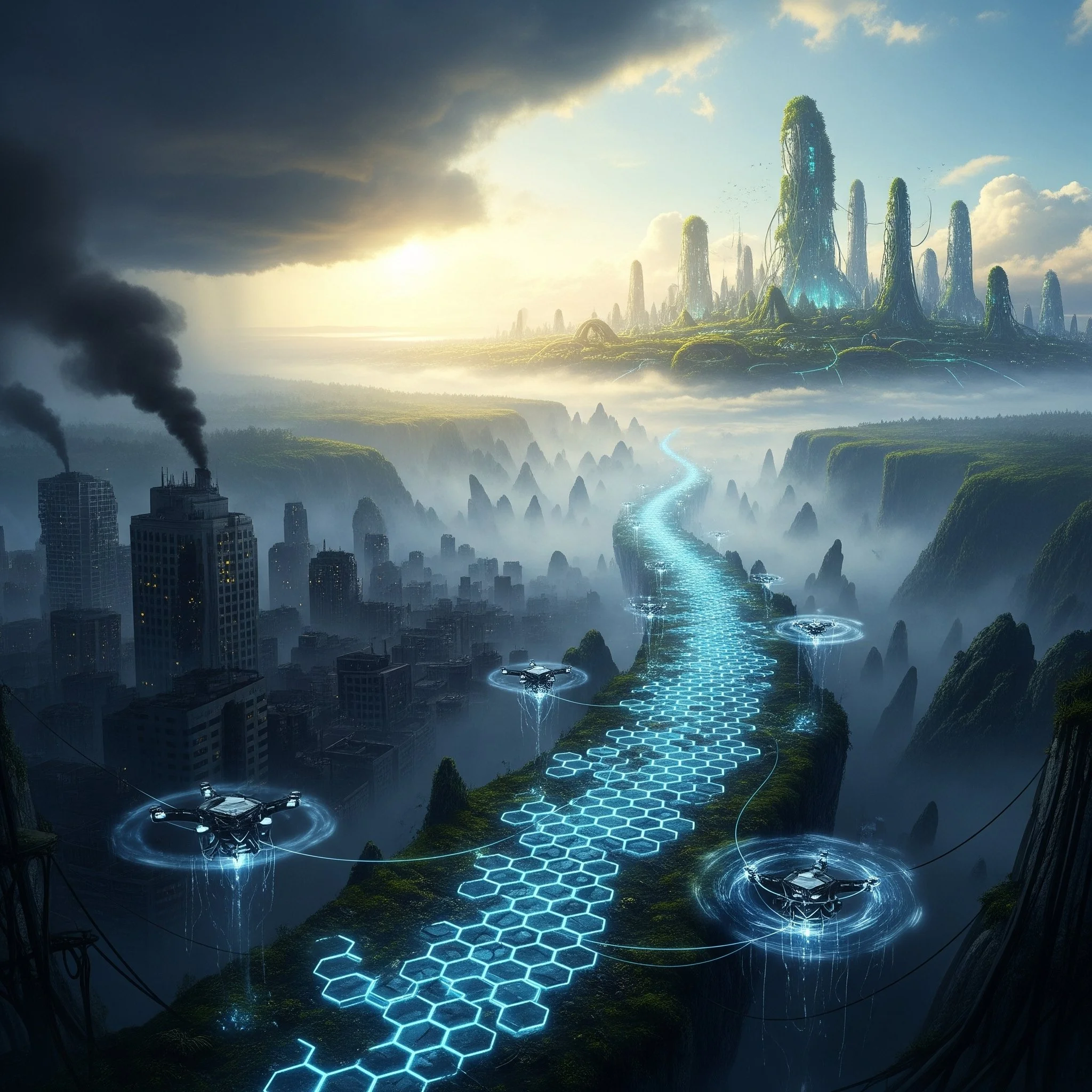
The Automaton Economy (Part 5): The Path to a World After Work
In the concluding chapter of "The Automaton Economy," we address the ultimate question: how do we get there? This article details the profound cultural shifts in work, purpose, and status that a post-scarcity world would entail. It then lays out a pragmatic, three-phase transition plan from our current system to a new one. This finale is a call to action, arguing that the future is not something that happens to us, but a reality we have the power and responsibility to design.
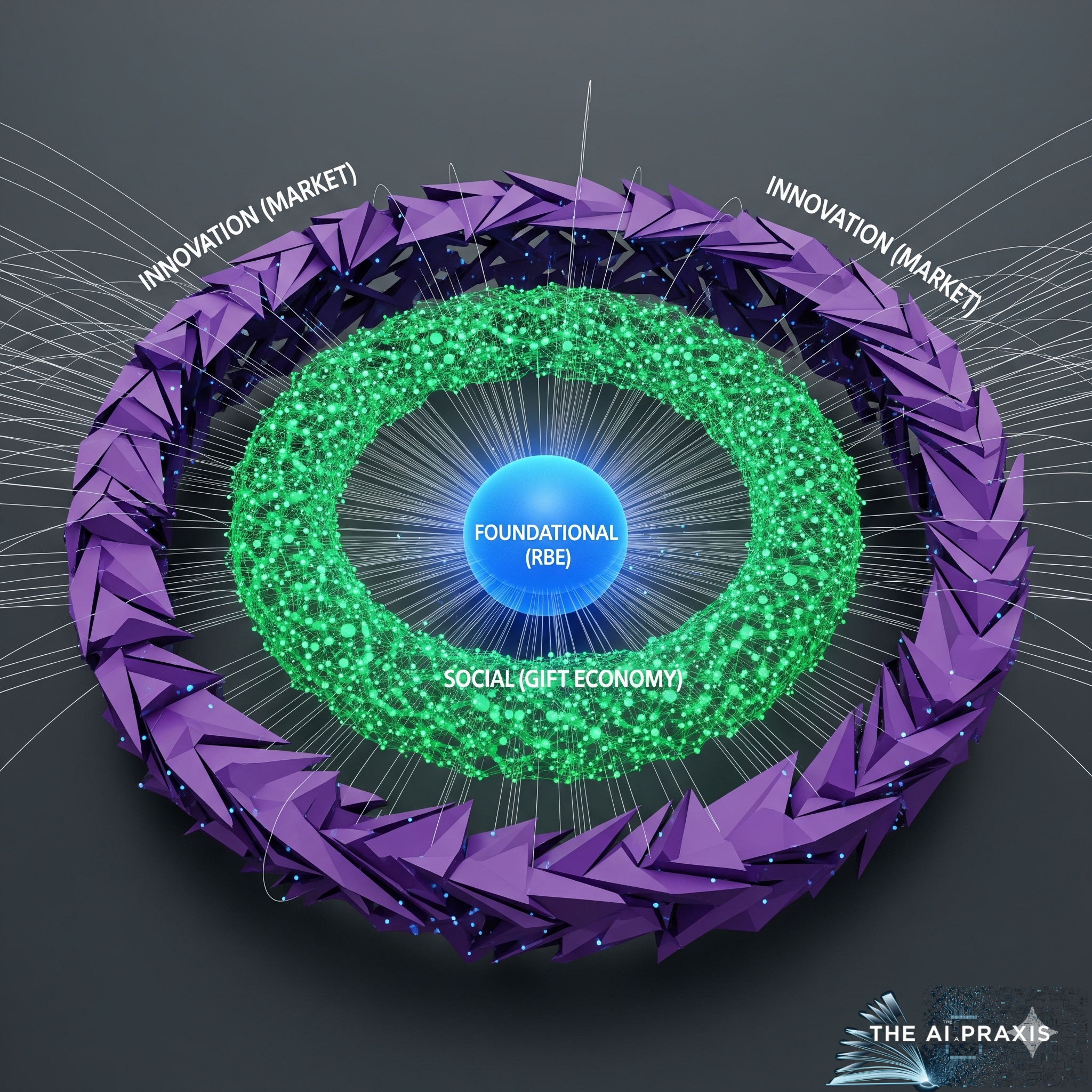
The Automaton Economy (Part 3): The Hybrid Economic Engine
Building on the foundational principles from Part 2, this article details the operational core of the Automaton Economy. I propose a resilient, three-layered hybrid model. The foundational layer is a Resource-Based Economy that uses AI to provide all necessities for free. The social layer is a digital gift economy where reputation, not money, is the currency for creative and intellectual work. The final layer is a dynamic market of worker-owned cooperatives for innovation. This is the engine of a post-scarcity world.

The Automaton Economy (Part 2): The Four Pillars of a Post-Work Society
In Part 1, we established why AI-driven automation makes our current economic system unviable. Now, in Part 2 of "The Automaton Economy," we begin the work of construction. This article outlines the four foundational principles required for a stable and prosperous post-work society: de-linking survival from labor, shifting production from profit to use, establishing democratic control over automated systems, and integrating ecological sustainability as a core economic goal. These pillars form the constitutional bedrock for a new social contract fit for the 21st century.

The Automaton Economy (Part 1): The Inevitable Obsolescence of Capitalism
This article launches a new series, The Automaton Economy, which confronts the most critical question of our time: What happens when AI makes mass human labor obsolete? We begin by diagnosing the terminal illness of our current economic system. I argue that AI automation creates a fatal paradox of production without consumption, leading to a systemic death spiral. This post deconstructs the inadequacy of patchwork solutions like Universal Basic Income (UBI) and establishes the urgent need to architect a new socio-economic model built for an age of intelligent machines.
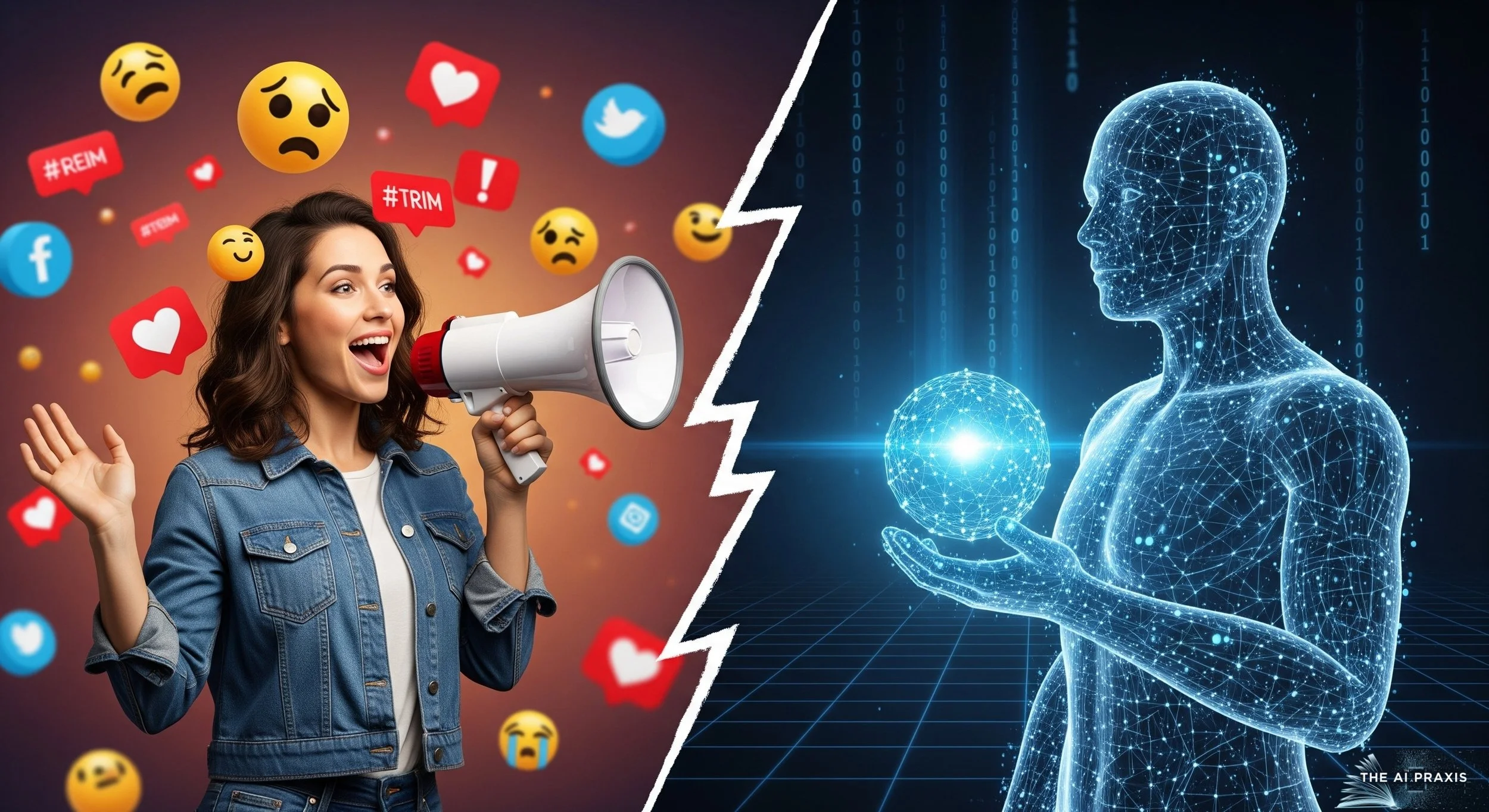
The Great Disruptor: Is the Influencer Industry's Time Up?
The influencer industry is on the verge of its greatest disruption. This article explores why the old playbook of persuasion, built on human psychology, is becoming obsolete in an age of algorithmic shoppers and why the new king of influence will be the expert.